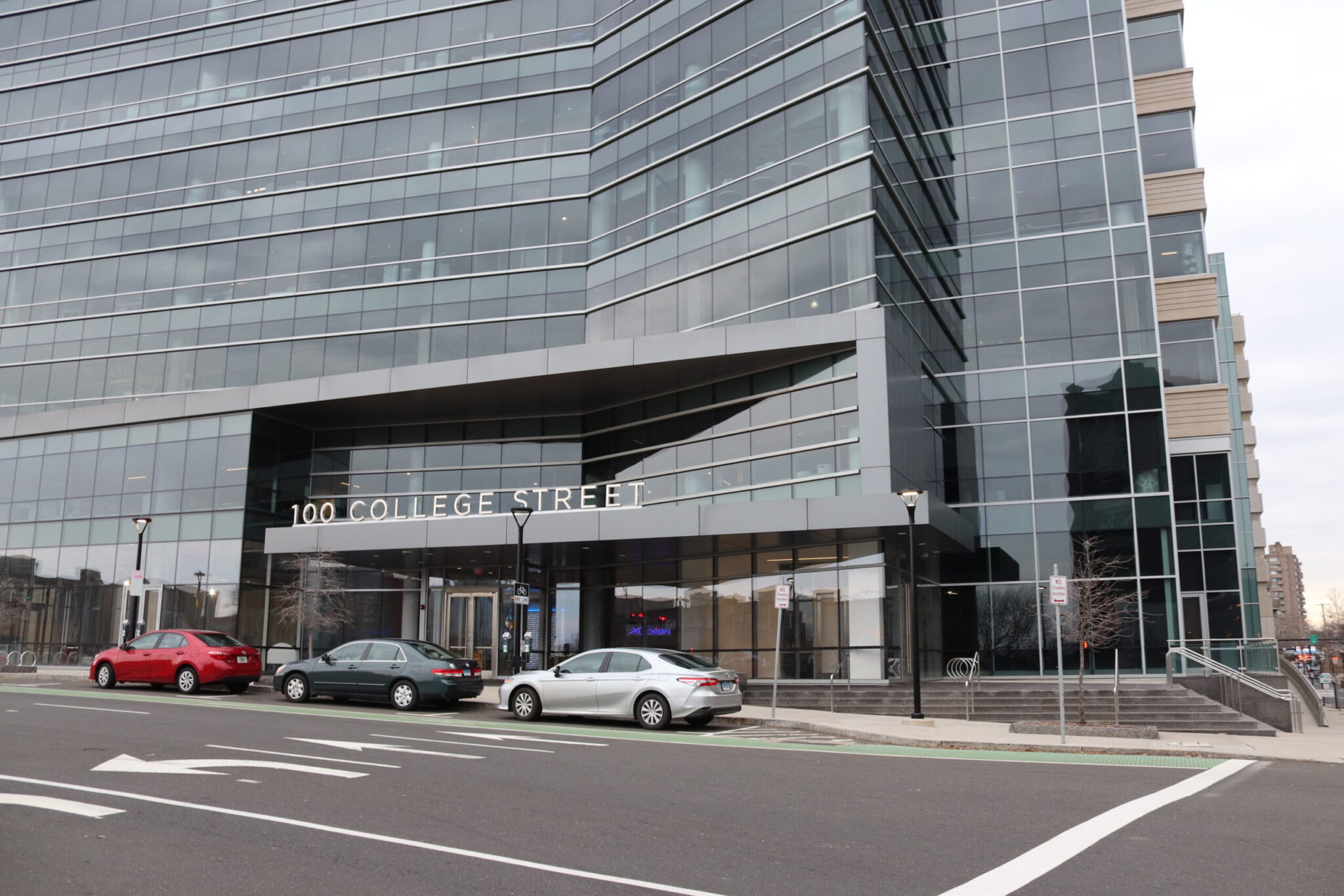One year after establishment, Digital Ethics Center researchers reflect on its progress
In its first year, the DEC has produced research on a variety of topics and formed relationships with programs both within and beyond Yale. The center’s leaders now hope to engage with the Yale and New Haven community.

Marisa Peryer, Senior Photographer
Since its establishment in the fall of 2023, the Yale Digital Ethics Center — also known as the DEC — has been exploring the societal implications of artificial intelligence and other nascent technologies, identifying both their potential benefits and the dangers they pose to humanity.
With a growing team of researchers and an interdisciplinary approach, the DEC has investigated a wide variety of topics, from the governance of undersea cables to AI’s impact on the practices of public-facing civil servants.
“Yale has some of the brightest minds in the world thinking about what could be done with digital technology,” postdoctoral researcher Jessica Morley wrote to the News. “But ‘could’ is only half the game. This is where ethics comes in and where we as a center fit.”
The DEC’s first year has been a “learning curve,” according to Morley, but one that she and other researchers at the center have enjoyed.
Unlike other AI-focused organizations at Yale, the DEC intentionally takes a more humanistic, philosophical approach, according to the center’s founding director Luciano Floridi, who is among the most cited living philosophers in the world.
“At every stage in human history and culture,” said Floridi, “philosophy should help us understand the world and society in which we live, enable more meaningful experiences and existences, and design better ways of behaving and interacting with each other and our environment. Today, this means interpreting, governing and steering the digital revolution, conceptually and ethically.”
Morley explained that going forward, the DEC hopes to engage more with the student body and collaborate with different parts of the wider Yale community.
The DEC planned a 10-session workshop for this semester focused on the ethical impacts and implications of the digital revolution. The workshop, which is open to the Yale community, will begin on Sept. 9. Floridi will lead the workshop.
In the past year, the DEC has established relationships with other schools and programs at the University, including the Jackson School of Global Affairs, the Wu Tsai Institute, the Information Society Project at Yale Law School and the School of Medicine, according to postgraduate researcher Renée Sirbu.
The DEC has also begun to look outward. In August 2024, the center hosted the Health Artificial Intelligence: Science, Technology, and Ethics — or HASTE — Community Workshop in collaboration with MIT. The three-day workshop was open to “senior high school and college students, health professionals, and community leaders in New Haven.”
“The purpose of HASTE was to try to encourage a broader, younger, and more diverse community to engage with questions on how to govern the use of AI in healthcare,” Morley wrote. “We wanted to give people a crash course in the range of issues raised by the use of AI in healthcare and get new, fresh ideas on how these might be solved. The aim is to write these up into policy recommendations.”
This year, the DEC has expanded its own ranks, adding two researchers, three undergraduate Director’s Fellows and five International Fellows to make a team of 23, amid the University’s increased focus on AI.
Just last month, in response to recommendations from the Report of the Yale Task Force on Artificial Intelligence, the University announced that it would commit $150 million to advance AI infrastructure over the next five years.
“On a larger scale,” said Nicolas Gertler ’27, a director’s fellow at the DEC, “Yale is trying to become more of a STEM-heavy school. A core part of exploring these topics, especially AI, quantum, VR and AR, is that you need to have the ethical and societal perspectives at the forefront.”
Currently, the researchers at the DEC are examining several topics, including the regulation of the use of AI in healthcare insurance, algorithmic monitoring in policing, the implementation of the European Union’s AI Act adopted in March 2024, the challenges of governing the metaverse and the development of state-level legislation for AI in the United States.
Director’s fellows at the center also have the freedom to pursue their own interests under DEC’s mentorship. For example, Gertler is focused on AI’s effect on education and workforce development, while Ethan Chiu ’26 is investigating how AI might impact pharmaceutical drug affordability.
“You have the flexibility to lead your own projects here, but you are also encouraged to collaborate with the other researchers,” Sirbu said. “It’s a nice balance between challenging yourself to grow as an independent researcher and leaning on others for their support, wisdom and experience.”
The Digital Ethics Center will host an open house on Sept. 10.







